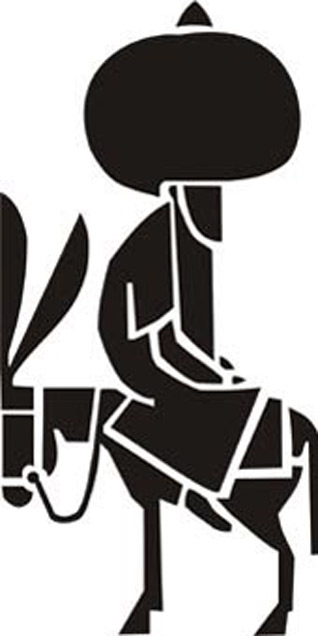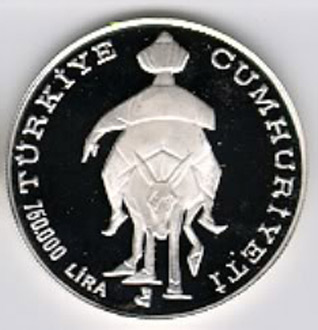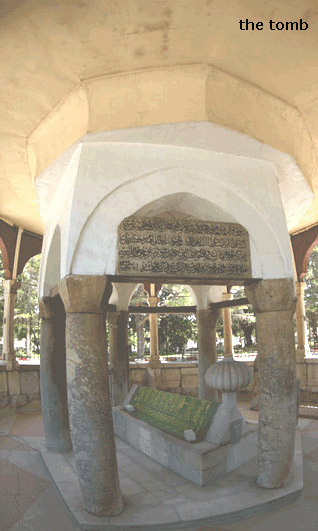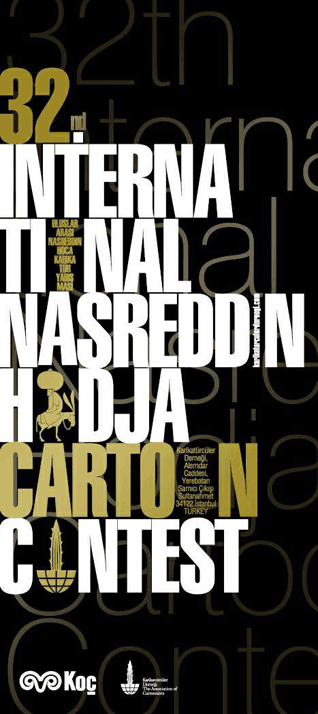Travel
The Wise Fool:
Nasreddin Hodja
T. SHER SINGH
DAILY FIX
Tuesday, November 6, 2012
It is said that the only wise men you will find in Shakespeare’s plays are fools.
“Better a witty fool than a foolish wit,” he once quipped.
On another occasion, a character exclaims: “this fellow’s wise enough to play the fool …”
As a child, I grew up on a steady diet of stories and fables. Every adult had an obligation to relate a story, any story, to a child: all the latter had to do was ask for one.
There was a recurring character who appeared in our favourite stories: Sheikh Chilli is all I remember of his name, phonetically. He was -- not unlike King Lear’s or Timon’s Fool -- witty, foolish, self-deprecating, wise and downright silly, all at the same time.
His antics made me laugh each time I heard or remembered them, not realizing then that each carried a moral, a lesson, something intrinsically wise. Decades later, these stories continue to resurface in my thoughts, often at the oddest of times.
I recall that I was told identical stories with another character as the protagonist: Birbal, who featured as a minister, confidant and foil to the great Moghul Emperor Akbar -- a contemporary of Shakespeare.
The first time I traveled in Turkey, I discovered Nasreddin Hodja who, I quickly realized, may very well be the prototype of all the famous fools we know of today. (This is not to be interpreted as a reference, by any stretch of the imagination, to any politician, dead or alive. I am talking here about a completely different animal.)
Anybody I met in Turkey with whom I was able to have a conversation of some length, would sooner or later tell a Hodja story to illustrate a point. As frequently, almost, as one would use a metaphor.
It didn’t take me long before I began to recognize some of these Turkish tales. They had echoes of the stories from my childhood.
Back in Canada, I discovered one day that a newfound friend of Persian descent had a similar repertoire. Except that she knew Nasreddin as a Persian character: Mullah Nasreddin. She too had grown up with these stories, her grandmother having wielded them deftly to make a point from time to time.
It aroused my curiosity and I began to dig for more. It wasn’t easy to find something -- our access to the great wealth of non-European knowledge is so-o-o limited!
But when I did finally lay my hands on a few books, published on three different continents other than North America, I discovered that in dozens of countries, Nasreddin pervades the public consciousness as thoroughly as, say, Shakespeare does in our society.
He appears in some form or the other throughout the Middle East. In South Asia, of course. In China, too. I wouldn’t be surprised if he is also part of the local lore in many of the central European and Asian countries which have experienced Persian and Arabic influence through the spread of Islam.
A few summers ago, however, while traveling in central Turkey, I stumbled into Nasreddin Hodja again.
We were in Konya (Iconium, of old), following the footsteps of an intellectual giant who remains relatively unknown in the West, the 13th-century Sufi mystic, Rumi.
As we meandered back towards Ankara, we pottered around the towns and villages which easily lured us in from the highway.
Akshehir, known locally as the “land of saints and scholars,” was one of them. We were heading towards its famed lakefront when we arrived at the city’s main square.
Smack in the middle of the roundabout was an intriguing monument depicting a huge fellow sporting a massive Turkish turban, astride a donkey, looking down upon the world with utter disdain.
Our driver and the two of us in the back, all recognized him instantly and exclaimed in chorus: “Hodja!”
It turned out that the grand old man -- he was indeed once flesh and blood, before he became myth and legend -- was born in the village of Horto, now only a short drive away, in 1208. He was educated in Konya and then settled down in Akshehir.
The son of an Imam (priest), he was named “Nasreddin” -- helper of the faith. He became known far and wide for his wit and wisdom.
He held the honorary title of “Hodja” -- “Mullah,” according to the Persians -- which means “learned man” or “teacher”, and which suggests he may also have been a man of the cloth. There’s also some evidence that he held the post of Cadi (Qaazi - “magistrate”).
Stories of his sharpness, forthrightness and simplicity have evolved into a complete folklore revolving around a simpleton who, through some deft use of self-deprecation and humour, became widely known as a sage and teacher.
As a contemporary of Rumi, did they meet? After all, both spent many years in Konya.
Many of the tales also consist of witty exchanges between the much-feared king, Timur the Lame, and a jester in his court named Hodja Nasreddin.
Historically, they weren’t contemporaries, though: the tyrant held sway over the same land a century later. But it shows how the Hodja’s reputation has grown in legend. [Timur also invaded the sub-continent, which may explain the prevalence of similar stories in Punjabi and Indian folklore.]
Were the stories and character known to the learned in Shakespearean England? Not improbable that the ’crusaders’ may have picked them up and brought them back, along with their unholy plunder.
We know that some of the exploits of Timur were common knowledge in England: that he became “Tamburlaine the Great” under the pen of Shakespeare’s great contemporary, Christopher Marlowe, in the play bearing the same name. Would it be too far-fetched to think that Shakespeare’s wise fools may have had a bit of Nasreddin in them?
Not far from the monument to the Hodja, we found his tomb. Bearing the size and shape of a large gazebo, it has two graves of interest: the Hodja’s and a larger one, of a favourite companion of his.
We stood around and fondly exchanged stories.
Someone suggested to the Hodja one day: “If you’ll give me that ring of yours as a gift, I’ll think of you every time I see the ring on my finger. Thus, I’ll remember you forever.”
The Hodja scratched his beard thoughtfully for a moment and replied: “Here’s what we’ll do. I won’t give you the ring. So that every time you look at your finger, you’ll think of the ring I didn’t give you. That way, you’ll still remember me always.”
A friend appeared at the Hodja’s door one day and asked if he could borrow his donkey. Not willing to do so, Nasreddin said: “Sorry, but I have already lent him to another person.”
At that very moment, the donkey brayed from behind his house.
The friend was annoyed and asked: “Isn’t that your donkey braying from your courtyard?”
Nasreddin was indignant. “If you are willing to take the word of a donkey above mine, you certainly do not deserve to be loaned anything, sir!” he replied, and slammed the door.
The oversized grave next to the Hodja’s attracts as much interest, if not more.
It is of the loyal friend who served as the foil to much of the Hodja’s wit: his donkey.
Conversation about this article
1: Sangat Singh (Kuala Lumpur, Malaysia), November 06, 2012, 6:59 PM.
Growing up, the fare we wallowed in had Sheikh Chilli, Birbal, Do Piaza and the ubiquitous Nasreddin Hodja - the stories were translated into almost all the languages. This was followed by Aesop's fables and graduated to all the witty quotations. What an enchanted life it was that thus honed our sense of humour. In 1985, I was attending an International Amateur Radio Conference in Seoul, and since we are today in the midst of the American elections, let me share with you an incident. New Zealand proposed a motion, but no one wanted to second it. The atmosphere became so tense that you could cut it with a knife. I raised my hand and said that before I second this motion I wish to share with them a story about the election in one of the third world countries, where the opposition broke into the police station and stole the next year's election results! That did it and New Zealand's proposal was seconded without any problem. 'hasandi-aa(n) khaylandi-aa(n) vichay hovai mukt" [GGS:522.10] - "While laughing, playing, adorning and feasting, one is liberated." So keep laughing. It is good for your health.
2: Hardev Singh (Richmond Hill, Ontario, Canada), November 07, 2012, 4:42 PM.
Delightful read. Let me share from "The Wisdom of Idiots" the following: The Sufi poet, Hafiz of Shiraz, wrote this famous poem: "If the Sharazi Turkish maid would take my heart / Into her hand: / I'd give Bokhara for the mole upon her cheek / Or Samarkand." Tamerlane had Hafiz brought to him and said: 'How can you give Bokhara and Samarkand for a woman? Besides, they are not your domains, and I shall not permit anyone to pretend that they are ...!' Hafiz said to him: 'Your meanness may have given you power. My generosity has put me in your power. Your meannesss is obviously more effective than my prodigality.' Tamerlane laughed and let the Sufi go.
3: Osmal (Canada), May 16, 2017, 11:40 AM.
Gurdjieff (Russian philosopher) brought to the West and illustrated to his disciples about Nasreddin. Sufi dervishes too teach using Hodja's stories and interpret them according to the level of their audiences. These humoristic stories serve many purposes in Central Asia.






